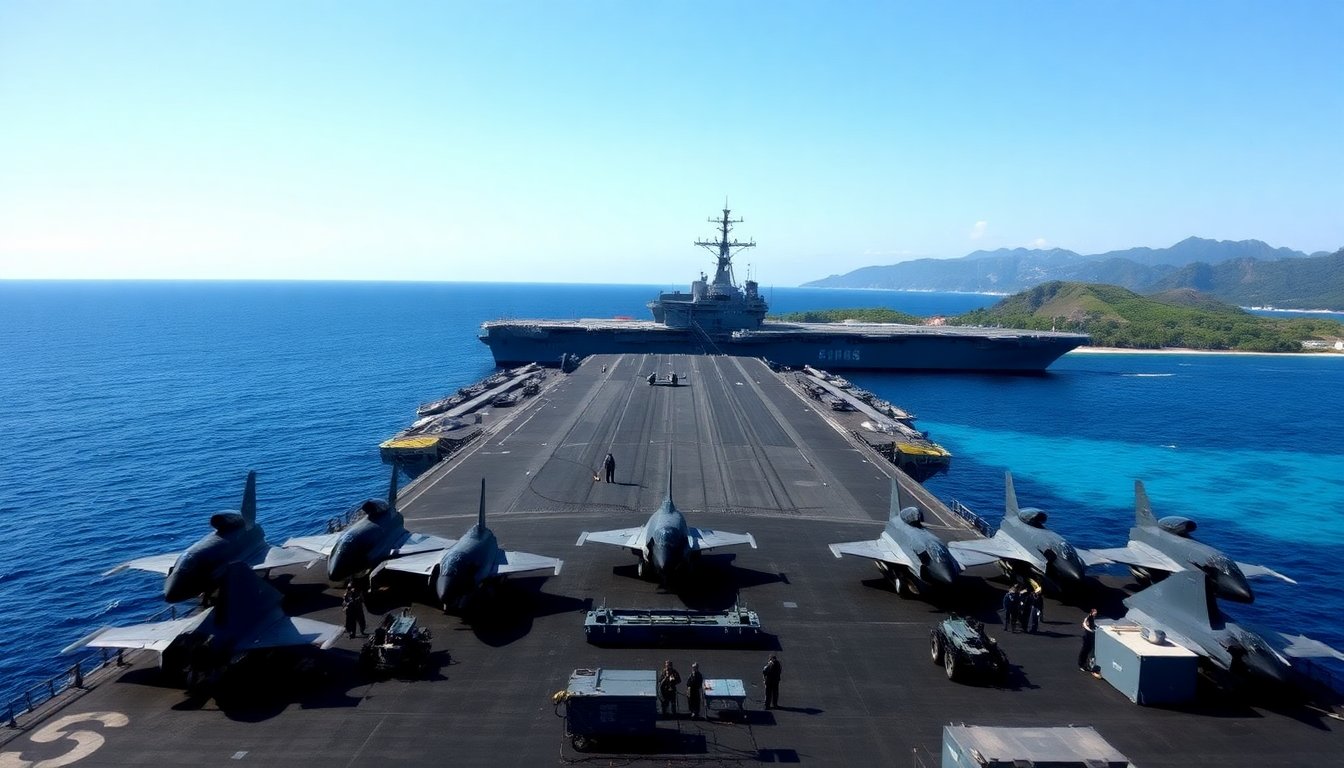Table of Contents
The recent arrival of the USS Gerald R. Ford, a leading U.S. aircraft carrier, near Venezuela has reignited discussions about the potential escalation of U.S. intervention in the region. This military buildup has led to speculation regarding the Trump administration’s intentions to intensify its anti-drug initiatives amidst ongoing tensions with the Venezuelan government.
As the political landscape evolves, the implications of increased military presence warrant closer examination. The deployment of such a formidable naval asset could dramatically alter the dynamics of U.S.-Venezuela relations, particularly considering longstanding issues surrounding drug trafficking and regional security.
Military strategy and its implications
The positioning of the USS Gerald R. Ford is not merely a show of force; it represents a calculated strategy by the U.S. aimed at addressing drug trafficking networks in Latin America. In recent years, Venezuela has increasingly been viewed as a pivotal point for drug routes, with U.S.
officials attributing a significant portion of narcotics trafficking to the government’s complicity.
This military maneuvering raises questions about the effectiveness of current anti-drug policies and whether a more aggressive approach is on the horizon. The Trump administration has previously indicated a desire to reshape its stance towards drug-related issues, suggesting that the carrier’s presence could signal a broader strategy.
Political ramifications
In the context of domestic politics, the timing of this military operation is noteworthy. Critics argue that President Trump’s focus on external threats may serve to divert attention from pressing domestic concerns, such as the economy and healthcare.
Former Republican spokesperson Tim Miller pointed out that neglecting the electorate’s needs could lead to increased unpopularity as the 2025 elections approach.
Furthermore, Miller emphasized that Trump’s failure to engage with the economic struggles faced by many Americans could backfire politically.
The president’s preoccupation with international conflicts, such as the situation in Venezuela, might further alienate voters who prioritize domestic issues.
Future of U.S.-Venezuela relations
The escalation of military presence near Venezuela is likely to complicate the already fraught relationship between the two nations. Historically, U.S. interventions in Latin America have often resulted in backlash and increased anti-American sentiment. Analysts suggest that a heavy-handed approach may not yield the desired results and could exacerbate the situation.
As the U.S. navigates these complex waters, the focus will need to shift towards diplomatic efforts that address the root causes of drug trafficking instead of merely applying military pressure. Engaging with regional partners and fostering economic development in vulnerable areas may prove to be more effective in combating the drug crisis.
Possible outcomes
Ultimately, the deployment of the USS Gerald R. Ford marks a critical juncture for U.S. foreign policy in Latin America. It remains to be seen whether this military presence will translate into tangible solutions or if it will lead to further entrenchment of existing issues. Experts warn that without a clear strategy that includes both military and diplomatic measures, the U.S. risks entering a cycle of escalation that could destabilize the region.
As tensions in Venezuela simmer, the implications of U.S. military maneuvers will be closely monitored both domestically and internationally. The intersection of military strategy and political realities presents a challenging landscape for the Trump administration, with potential ramifications that could affect U.S. standing in Latin America for years to come.





